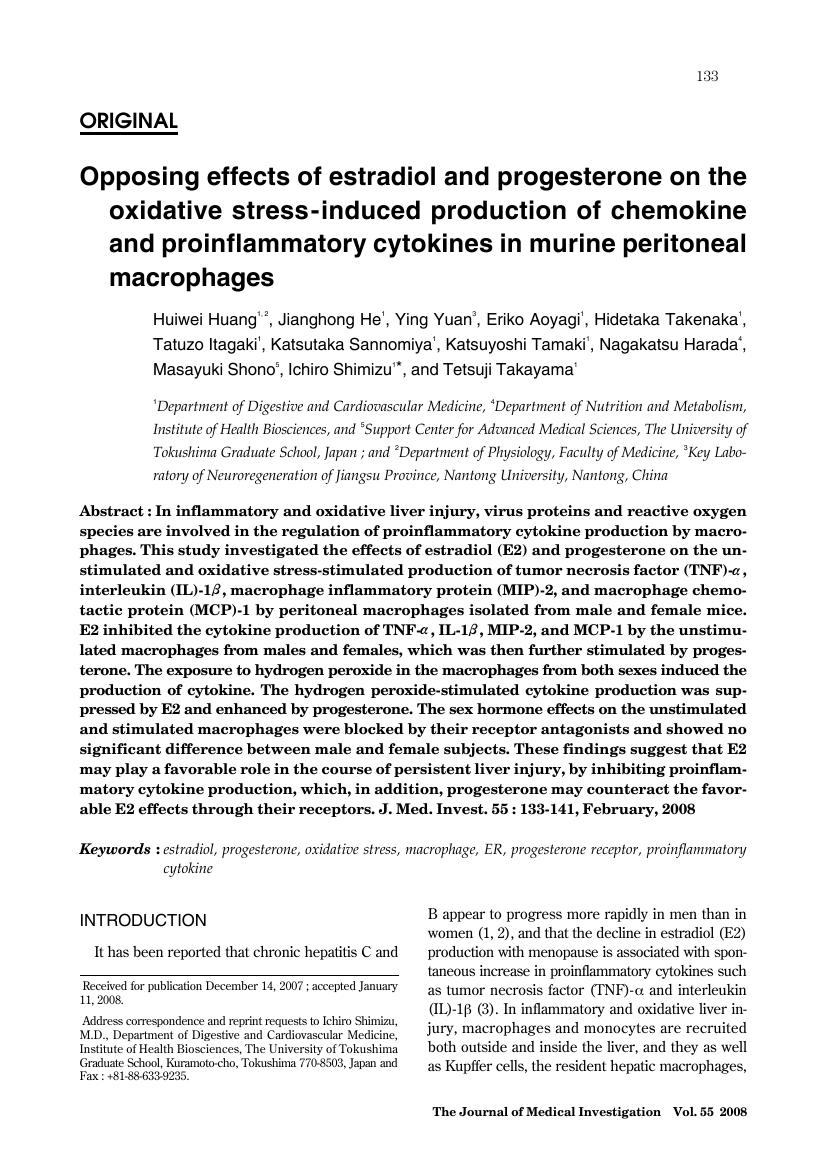- J-STAGE home
- /
- The Journal of Medical Investi ...
- /
- Volume 55 (2008) Issue 1,2
- /
- Article overview
-
Huiwei Huang
Department of Digestive and Cardiovascular Medicine, The University of Tokushima Graduate School Department of Physiology, Faculty of Medicine, Nantong University
-
Jianghong He
Department of Digestive and Cardiovascular Medicine, The University of Tokushima Graduate School
-
Ying Yuan
Key Laboratory of Neuroregeneration of Jiangsu Province, Nantong University
-
Eriko Aoyagi
Department of Digestive and Cardiovascular Medicine, The University of Tokushima Graduate School
-
Hidetaka Takenaka
Department of Digestive and Cardiovascular Medicine, The University of Tokushima Graduate School
-
Tatuzo Itagaki
Department of Digestive and Cardiovascular Medicine, The University of Tokushima Graduate School
-
Katsutaka Sannomiya
Department of Digestive and Cardiovascular Medicine, The University of Tokushima Graduate School
-
Katsuyoshi Tamaki
Department of Digestive and Cardiovascular Medicine, The University of Tokushima Graduate School
-
Nagakatsu Harada
Department of Nutrition and Metabolism, Institute of Health Biosciences, The University of Tokushima Graduate School
-
Masayuki Shono
Support Center for Advanced Medical Sciences, The University of Tokushima Graduate School
-
Ichiro Shimizu
Department of Digestive and Cardiovascular Medicine, The University of Tokushima Graduate School
-
Tetsuji Takayama
Department of Digestive and Cardiovascular Medicine, The University of Tokushima Graduate School
2008 Volume 55 Issue 1,2 Pages 133-141
- Published: 2008 Received: - Available on J-STAGE: March 04, 2008 Accepted: - Advance online publication: - Revised: -
(compatible with EndNote, Reference Manager, ProCite, RefWorks)
(compatible with BibDesk, LaTeX)


